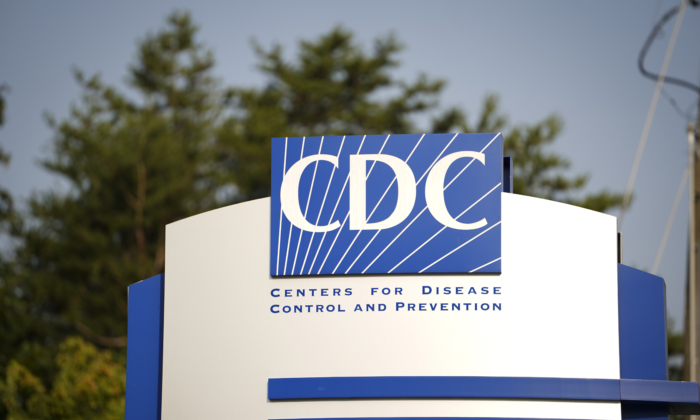


Advisers to the U.S. Centers for Disease Control and Prevention (CDC) on Sept. 12 recommended that nearly all Americans receive one of the new COVID-19 vaccines.
The Advisory Committee on Immunization Practices said that the new vaccines are recommended for people aged 6 months or older, regardless of underlying health, prior vaccination, or previous COVID-19.
The U.S. Food and Drug Administration this week authorized and approved new shots from Moderna and Pfizer, leading to the recommendation.
The CDC is expected to accept the advice. Dr. Mandy Cohen, the director of the CDC, has said that people should receive annual COVID-19 vaccines.
CDC data presented to the advisers before the vote showed the currently available vaccines, cleared just one year ago, don't protect well against hospitalization, and only clinical trial data for one of the new shots were available.
But advisers said the new vaccines would help add protection against severe illness and so-called long COVID.
"It's clear that vaccination is going to prevent serious illness and death across all age groups," said Dr. Beth Bell, one of the advisers.
"I recognize that long COVID is a big deal and the risk goes down with COVID vaccine," said Dr. Katherine Poehling, another adviser.
A CDC presentation (pdf) said that long COVID, or conditions developing at least four weeks after a COVID-19 infection, is reduced by COVID-19 vaccination.
The vote was split 13–1, with one adviser indicating he didn't feel a universal recommendation was backed by evidence.
"I certainly think that 65 and older should because of the data presented, and certainly other high-risk groups should, but I think the rest should be 'may,'" Dr. Pablo Sanchez, the adviser, said.
The CDC can say people should or may receive a vaccine or group certain populations into shared clinical decision-making, which explicitly leaves the decision to a person and their doctor.
"I feel that the overwhelming benefits of recommending it for everybody and making it a simple recommendation will outweigh the complications that would happen with shared-decision making or risk-based recommendations," Dr. Jamie Loehr, another adviser, said.
Data on Vaccines
Moderna presented data from a trial of 101 people, 50 of whom received the XBB.1.5 shot.Within seven days of vaccination, adverse reactions were similar to or lower than earlier Moderna doses, according to Moderna's presentation.
Moderna officials also said that neutralizing antibodies went up after receipt of a vaccine across newer variants, such as EG.5.1, though the increases were lower for people with prior infection.
No efficacy estimates were presented.
The vaccine "is anticipated to be effective against current SARS-CoV-2 variants," Dr. Frances Priddy, a Moderna official, said.
Mice testing found an increase in neutralizing antibodies when comparing the new vaccine to older shots, according to Pfizer's presentation.
Approximately 400 people 12 and older also received one of the new shots, but results from that trial were not presented.
Novavax also presented data on its new vaccine, which has not yet been cleared. Novavax says the vaccine increased neutralizing antibodies in monkeys. It presented no clinical data.
Novavax can be folded into the existing recommendations once cleared, without the panel meeting again.
The government is again paying for millions of doses of the vaccines. It is paying Pfizer $1 billion and Moderna $601 million for 20 million pediatric doses alone.
Vaccines for many others will be covered through Medicare, Medicaid, and insurance, according to the CDC.
Just 17 percent of the U.S. population has received one of the shots that became available in the fall of 2022, according to CDC data. Some seven out of 10 people have received a primary series.
Surveys of people have shown that reasons for not receiving a vaccine include concern over side effects and the belief that they do not need a vaccine.
Potential side effects of the new vaccines, based on older versions, include severe allergic shock and myocarditis.
Lack of Data on Children
None of the data provided evidence supporting vaccination in children, advisers acknowledged."The data on children is not there, and for that I think this discussion needs to be had," Dr. Sanchez said.
Still, some advisers said it was safe to assume the vaccines will work in kids.
"We don't have a lot of data in children, but in terms of universal it's likely there will be a benefit," Dr. Oliver Brooks, one of the advisers, said.
Dr. Matthew Daley, another adviser, noted there is data on children for earlier versions of the vaccines.
He claimed that the vaccines can prevent deaths, which was not shown during the meeting.
Dr. Robert Malone, who helped invent the technology Pfizer and Moderna use and is not on the panel, told EpochTV's "Crossroads" before the vote that he is opposed to recommending new vaccines.
"We have a lack of data to support this decision," he said, adding later, "These products have no substantial benefit, and they have a significant risk."


